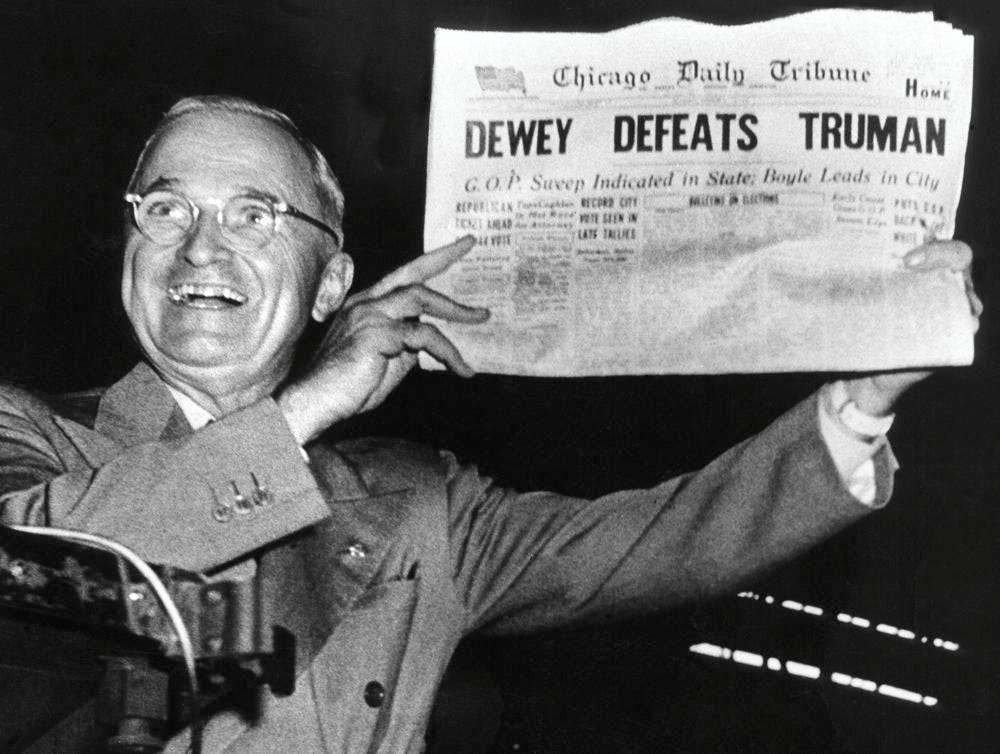1936: The Literary Digest
By the election of 1936, the Literary Digest had been correctly predicting the outcomes of the presidential elections for nearly 20 years. For the election of 1936, they wished to do the same and conducted a massive poll of more than 2 million people. But while their poll showed that Alf Landon would win the election, FDR ended up winning 523 - 8. 523 to 8! That landslide victory was the largest margin since 1820 so what went wrong? The Literary Digest failed in their first stage of polling, the sampling. The people who read the Literary Digest were generally richer than the average population so while the poll had surveyed more than 2 million people, it failed to account for the poorer person's vote, which FDR exclusively carried. Therefore, no matter how large the sample, if it is already biased, no amount of people will be able to correct that mistake.
1948: Gallup Poll

During the election of 1948, Gallup conducted a massive poll which showed that Dewey would defeat Truman by about 4%. Newspapers were convinced and in order to get a jump on their competition, began to print Truman's defeat before the end of the election. When Truman actually won, the newspapers and Gallup were left in an awkward situation. What Gallup failed this time was that even though they conducted a massive poll and arguably polled the right people, they stopped polling a couple weeks before the end of the race assuming that people would not their mind. Thus, the lesson learned here is to make sure that you see the task through and not to make assumptions.
1996: The Arizona Primary
During the 1996 Arizona Primary, 3 major news networks conducted exit polls to determine that Pat Buchanan would win, followed by Steve Forbes, and then finally Bob Dole. But when the votes were finally tallied, Steve Forbes won, with Bob Dole following and, Pat Buchanan in dead last. How could this happen? What they didn't know, or expect, was that these people that were answering the polls, actively sought out the pollers in order to make it seem like Buchanan would win no matter what. Thus, this caused voters to reconsider their decision on who or if they would vote at all causing the idea of the "Buchanan Bias."
No comments:
Post a Comment
Note: Only a member of this blog may post a comment.